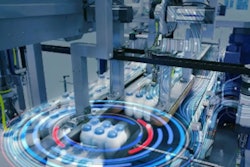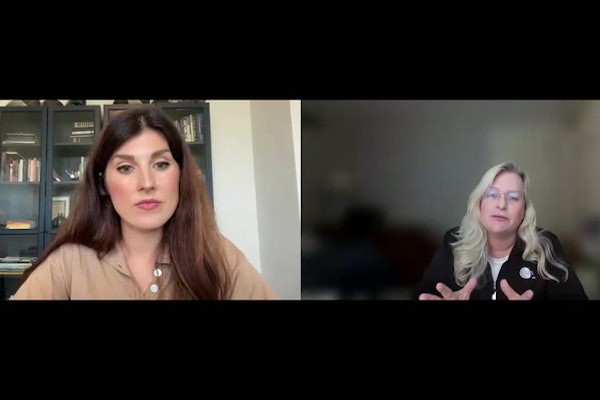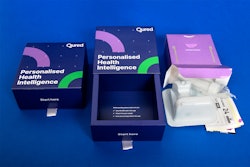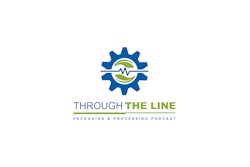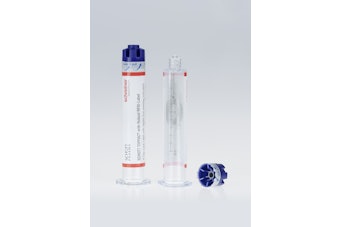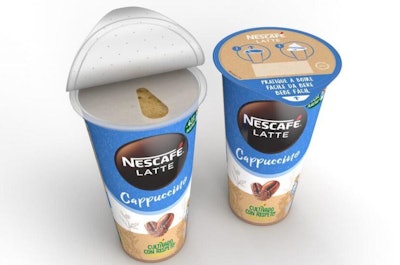
The development of biodegradable, compostable packaging, and novel bio-based substitutes to plastic are continuing unabated. Nevertheless, the absence of widely available industrial composting infrastructures in many markets significantly hinders widespread adoption.
Learn more about ThePackHub's Innovation Zone here.
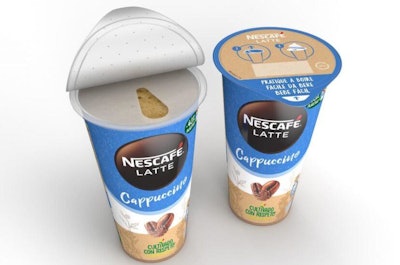 Lactalis Nestlé Spain's new ready-to-drink latte cups use plastic that contains 30% second-generation bio-based PP.ThePackHub
Lactalis Nestlé Spain's new ready-to-drink latte cups use plastic that contains 30% second-generation bio-based PP.ThePackHub
Lactalis Nestlé Spain has reformulated the make-up of its ready-to-drink latte coffee cups to improve its sustainability profile. The new cups incorporate plastic that contains 30% of second-generation biobased PP (polypropylene). The change follows previous moves to reduce the amount of plastic used, namely by removing the plastic overlap, and plastic label with one made of board, making them easy to recycle. The company says that these measures make them the first brand in the category that uses bioplastics in the composition of its cups. Nestlé also says that the move gives a second life to waste from renewable natural resources and significantly reduces carbon footprint. The new cups also have an increased capacity of 8%, moving to 205 ml instead of the previous 190 ml, thus offering a greater quantity of product without the total plastic used in the packaging increasing.
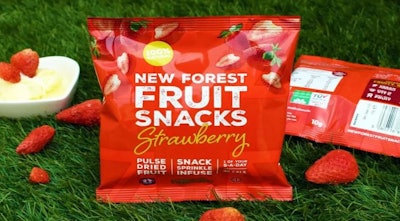 New Forest Fruit's new dried strawberry range will be packaged in compostable packaging from Parkside Flexibles.ThePackHub
New Forest Fruit's new dried strawberry range will be packaged in compostable packaging from Parkside Flexibles.ThePackHub
Yorkshire packaging company Parkside Flexibles has provided a new home-compostable flexible packaging solution for New Forest Fruit’s new ‘plant to packet’ dried strawberries range. Parkside will provide the company based near the south coast of England with packaging made from its established Park2Nature film, a triplex material manufactured from renewable resources such as plant fibers, and has PEFC (Programme for the Endorsement of Forest Certification). Parkside says this material has also been certified as home compostable by German standards organisation Technischer Überwachungsverein. This certification means that Park2Nature takes a maximum of 26 weeks in normal home conditions and 12 weeks in an industrial setting to degrade into compost. New Forest Fruits’ products are referred to as ‘plant to packet’, as they are grown, processed, and packed entirely on the company’s farm in Hampshire, ensuring the carbon footprint of each product is kept to an absolute minimum.
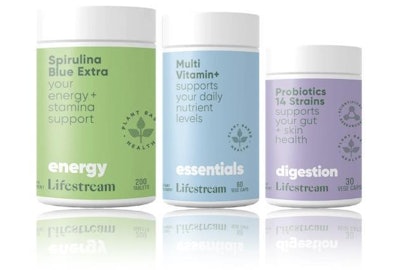 Lifestream has switched to supplement packaging made from sugarcane.ThePackHub
Lifestream has switched to supplement packaging made from sugarcane.ThePackHub
Lifestream, a New Zealand producer of plant-based supplements, has redesigned its packaging to appeal to a more contemporary and ‘millennial’ target market. Part of the redesign is a move to bottles made from sugar cane. The bottles are being supplied by Auckland-based Forward Plastics, which are produced from non-genetically modified sugarcane, which is sustainably and ethically sourced from Brazil as a by-product of the sugarcane industry. The sugar cane is milled and transformed into sugarcane ethanol, which is then used to create sugar cane plastic. Curious Design Consultants designed the new bottles, also based in Auckland, with the labels being printed by Label & Litho in Wellington, which the company says are made from biodegradable paper. A spokesperson for Lifestreamsaid they are proud of their long-standing commitment to delivering the highest quality, plant-based supplements on the market and protecting the environment.
Learn more about ThePackHub's Innovation Zone here.




